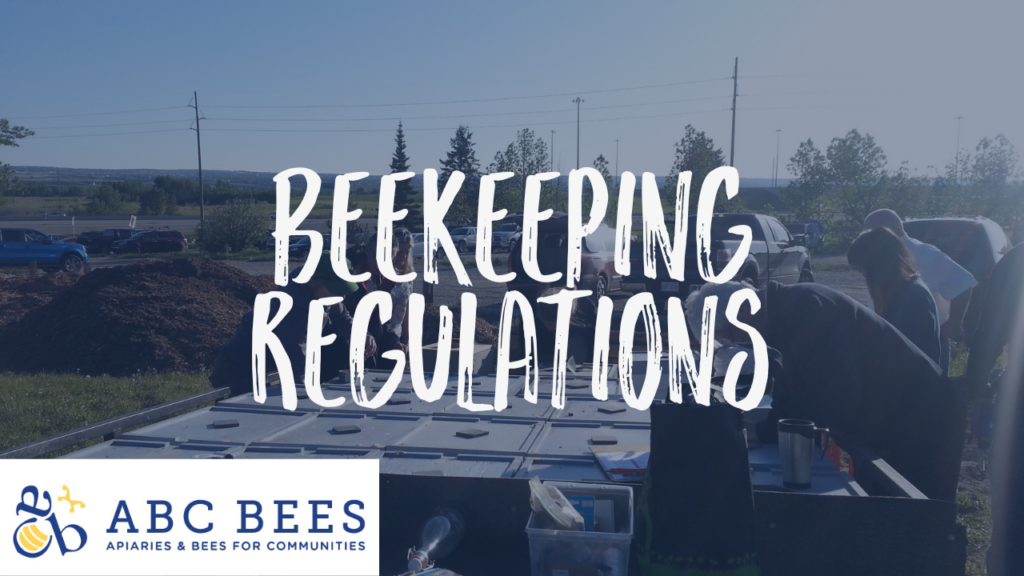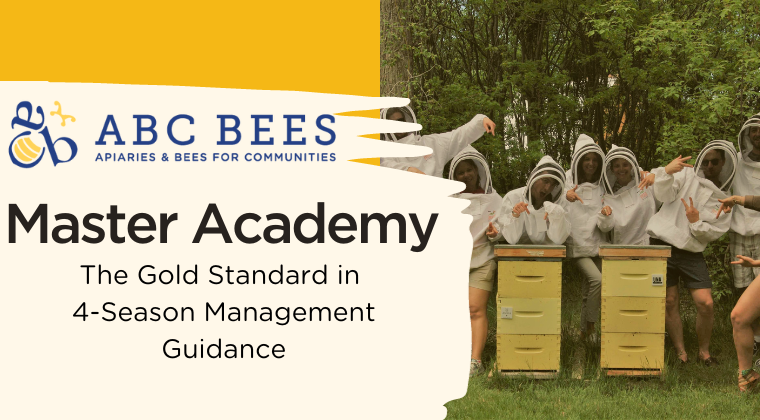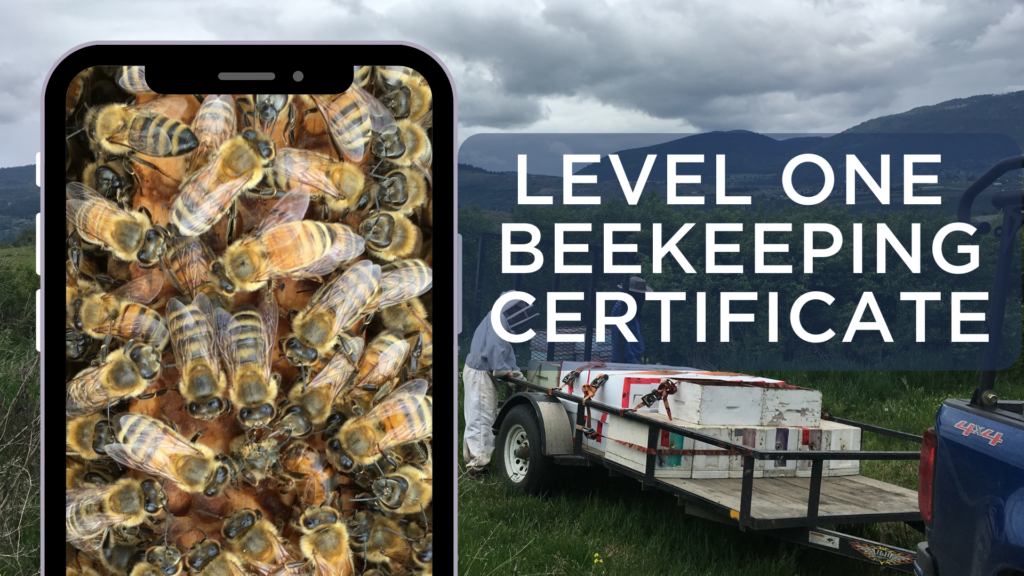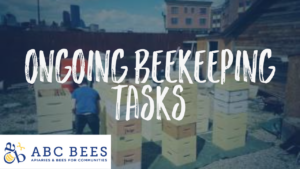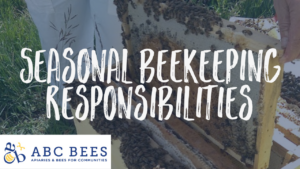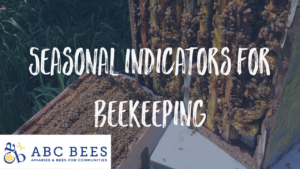Outcomes
Learners will have a comprehensive understanding of the essential steps to navigate beekeeping regulations
Key Takeaways
Understanding Beekeeping Regulations:
Beekeeping comes with responsibilities and varying regulations, whether you’re in urban or rural areas.
Provincial and state apiculture offices oversee key regulations, including bee and equipment registration.
Municipal regulations can impose hive placement rules, hive limits, and other guidelines.
Navigating Regulations:
Check if a Premises ID Number (PID) is required by your local agricultural office.
Follow a comprehensive checklist covering local regulations, registration, fees, hive placement, care standards, neighbor notifications, training, and beekeeping offenses.
Adhering to regulations ensures responsible and confident beekeeping.
Responsible Beekeeping:
Registering bees aids in disease control and resource allocation.
Neighbor notifications, though not always mandatory, promote community harmony and safety.
Complying with regulations fosters a positive and supportive beekeeping environment.
While beekeeping can be an incredibly rewarding endeavor, it also comes with a set of responsibilities and regulations that are crucial to understand and adhere to. Whether you’re in the countryside or an urban setting, beekeeping regulations can vary significantly. In this blog post, we’ll walk you through the essential steps to navigate municipal and provincial beekeeping regulations, ensuring a smooth journey into this fascinating world of beekeeping.
Understanding Provincial and State Regulations
The first step in your beekeeping journey is to determine whether your region has a provincial or state apiculture office. This office serves as the central hub for beekeeping regulations and oversight. Here’s what you need to know:
Provincial or State Regulations
– Find out if your province or state has an apiculture office.
– If it does, you must register your bees and beekeeping equipment with them.
Some regions require beekeepers to obtain a Premises ID Number (PID) from their local agricultural office. This is essential because bees are considered livestock. It’s important to note that the apicultural office (bee regulation) does not share information with the agricultural office due to privacy regulations.
Municipal Regulations
– Check if there are municipal regulations in place for keeping bees in your area.
– Familiarize yourself with these regulations, as they may impose specific guidelines on hive placement, hive limits, and more.
To ensure you’re in compliance with all relevant regulations, consider following this checklist:
Review Local Regulations
– Begin by thoroughly reviewing the local beekeeping regulations in your area.
Registering Bees
– Determine if your region requires you to register your bees locally.
– Understand the documentation needed to obtain a license if registration is required.
Registration Fees
– Check if there’s a registration or licensing fee associated with beekeeping in your area.
– Be clear about any costs involved.
Hive Placement
– Learn about rules concerning hive placement, including distances from dwellings, property lines, and public areas.
Hive Limits
– Discover if there are rules regarding the number of hives allowed per household.
– Ensure you comply with hive quantity restrictions.
Standards of Care
– Familiarize yourself with guidelines for the standard of care, including disease management, swarm control, and aggression prevention practices.
Neighbor Notifications
– Determine whether you need to notify your neighbors about your beekeeping activities.
– While not always required, it’s a considerate practice in many communities.
Training Course
– Check if completing a beekeeping training course is mandatory in your region.
– Investing in the right knowledge can be crucial for responsible beekeeping.
Beekeeping Offenses
– Find and review the list of beekeeping offenses in your area.
– Understand the complaints, reporting procedures, and potential fines.
Conclusion
By understanding and adhering to municipal and provincial regulations, you can embark on your beekeeping adventure confidently and responsibly.

